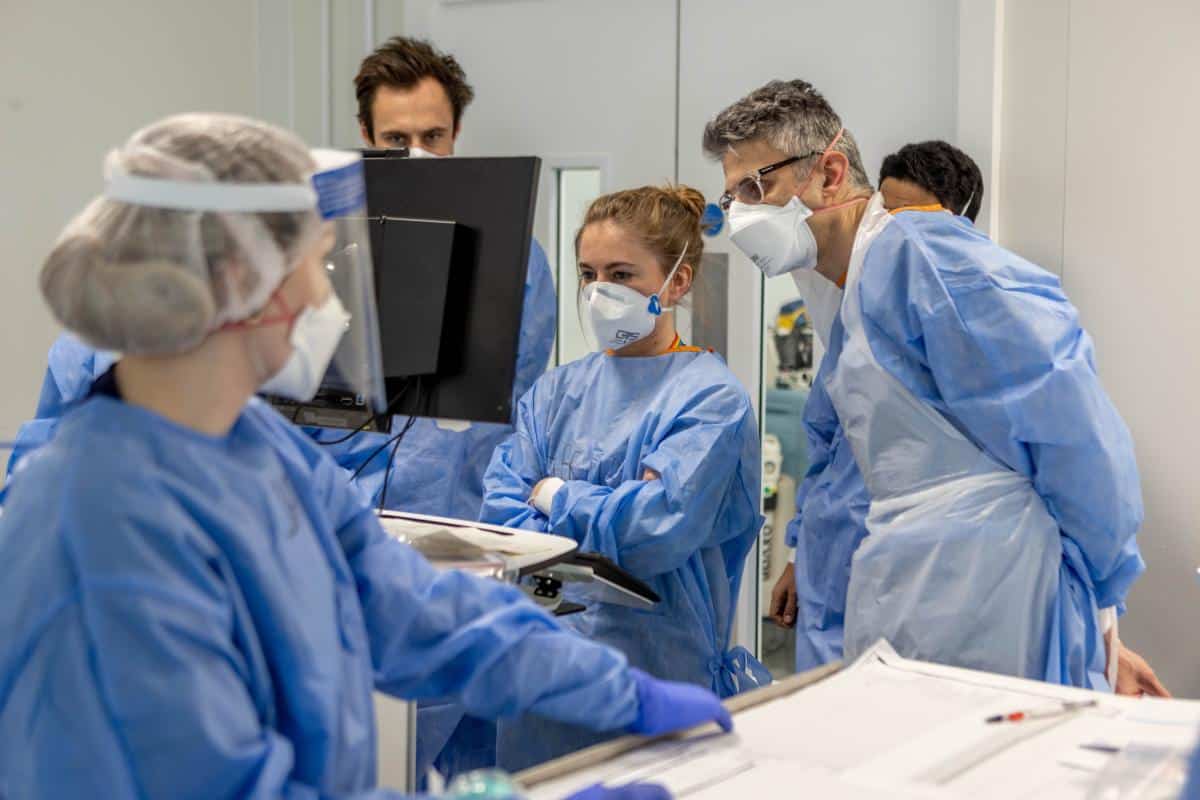Single Covid-19 vaccine dose may boost protection in those previously infected

A new study has found that a single dose of the Pfizer Covid-19 vaccine may boost protection against Covid-19 variants for those who have previously had the virus.
The study, published today in the ‘Science’ journal is led by researchers at Barts Health NHS Trust, Imperial College London, Queen Mary University London and University College London and also in collaboration with Public Health England, Royal Free Hospital NHS Trust.
The research was supported by funding from the UKRI Medical Research Council and Barts Charity.
The study looked at the immunity responses of healthcare workers who had previously contracted Covid-19, after they had taken their first Pfizer vaccine dose.
They found that people who had previously had mild or asymptomatic infection had significantly enhanced protection against the Kent and South Africa variants respectively.
In those without prior Covid-19 infection, the immune response was less strong after a first dose, potentially leaving them at greater risk from variants.
Blood samples were analysed for the presence and levels of immunity against the original strain of Covid-19 as well as the Kent and South Africa variants.
Along with antibodies, the researchers also focused on two types of white blood cell: B-cells, which ‘remember’ the virus and T-cells, which help B-cell memory and recognise and destroy cells infected with coronavirus.
They found that after a first dose of vaccine, prior infection was associated with a boosted T-cell, B-cell and neutralizing antibody response.
However, in people without previous Covid-19 infection, a single vaccine dose resulted in lower levels of neutralizing antibodies against Covid-19 and the variants.
Despite the team only looking at two variants of concern, it’s possible that the findings will apply to other variants in circulation, such as the Brazil and India variants. However, it remains unclear precisely how much protection is offered by T-cells.
Professor Rosemary Boyton, Professor of Immunology and Respiratory Medicine at Imperial College London, who led the research team said: “Our findings show that people who have had their first dose of vaccine and were not previously infected with Covid-19 are not fully protected against the circulating variants of concern. Natural infection alone may not provide sufficient immunity. As new variants continue to emerge, it is important to fast track global rollout of vaccines to reduce transmission of the virus and remove the opportunities for new variants to arise. This study highlights the importance of getting second doses of the vaccine rolled out to protect the population.”
Professor Danny Altmann, Professor of Immunology at Imperial College London, commented: “At a time of generally improving outlook in those countries with substantial vaccine rollout programmes, this study reminds us of the need to be vigilant about the threat of the variants. Most vaccinated people in the UK have received just one dose. While we know this offers remarkable protection against the original virus, our data suggest this leaves people susceptible to variants of concern.”
Professor Áine McKnight, of Queen Mary University of London, said: “Our study offers reassurance and a warning. We show that current vaccines offer some protection against variants of concern. However, people who have received only the first course of a double dose vaccine show a more muted immune response. We must ensure that the global vaccination programme is fully implemented. Current events in India make painfully clear the cost of complacency.”
Chief investigator of the healthcare worker study, Professor James Moon of University College London and Barts Health NHS Trust, said: “These results represent a collaborative science at its best between hospitals, universities and public bodies providing important timely results to inform policy and strategy.”
You can read the full paper here.

 Accessibility options
Accessibility options Translate the page
Translate the page